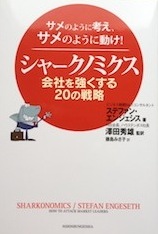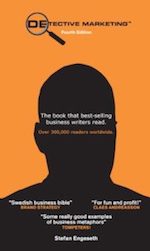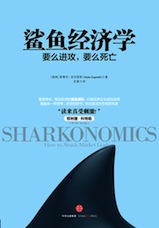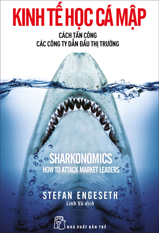On a transparent market, customer needs to be a part of the value of the service. If you run a restaurant you need a good chef and guests who tell friends who enjoy that sort of food. My advice is to skip the ads and concentrate on hiring better chefs. Unfortunately, many companies don’t start with the goods or services that they are selling. In the case of the good restaurant in my example, they did. I now eat there and have told all my friends.
Do you feel so ONE as a consumer that the bill taste better?
The war industry is the most high tech business in the world. And that is also their biggest technical problem. Old news is new news into things changes. Like in the accident of the submarine Kursk K-141. In does tragic accidents the responsible only ask their technique employees what did go wrong (they build the problem).
But working together with media they could ask readers to improve their submarines in the stories they report. They could then work with BBC in the covering of the Kursk disaster.
If so I could send them this simple idea that could save life in the future: Why not build a “baby submarine” inside the big ONE? So the people onboard can save them self (and escape into the “baby submarine)? Does kind of ideas is as low tech as a Bond movie, but when it works it will save lives (that is high tech for me).
How can media fuel evolution of business, products and brands? What is the “baby submarine” for corporation? What is your favorite peace submarine?
Update 28 April: (Respond from an expert)
I see the point of your blog is simple solutions or common sense, But in this case your idea has been tried and implemented to a certain degree. Submarines are very expensive as they are, and space is high commodity. Unfortunately the crew safety takes a back seat to the operational purpose of the sub which is to deter or wage war. Most boats when designed are crammed full of gear first and then the living and operational quarters are designed around them. Safety, is adhered to as much as possible, because obviously you need a crew to operate it. Since the operational environment of a submarine is very hazardous, when something goes wrong, it goes wrong quickly, weather it is a explosion on board, fire or flooding. That’s why Submariners are screened and highly trained to maintain their gear and recognize and bring casualty situations under control rapidly. But in the case of the Russians or the collapsing old Soviet Union fleet boats, when you let preventive maintenance and training slide because of cost, your asking for problems.
Best,
Eric Ryle
TheSubReport.com
Update 29 April:
Thanks to Eric, not often does so different thinkers meet (I am not the perfect soldier).
My interpretation of Eric expert opinion on saving soldiers is that in war they do not have the interest of saving soldiers (at least it does not come first). If they could save them self they maybe become prisons (that is a big risk – they now secrets). There lives are not as expensive as the submarines and soldiers are easy to replace (not unique – schooled to an standard). I find this most interesting and wonder if it isn’t is the same situation in the corporate world with employees and costumers – “risk management”?
If the soldiers on the submarine hade an option to not stick around they also maybe not been so motivated to stay and fight the battle out. This remind me of Caesar’s army landed on the British Isles, he knew he had to motivate his troops more than usual. He ordered all the boats burned before the soldiers’ eyes. By the light of the burning boats he explained that there was no turning back, no retreat. They had to win or die.
Today we don’t need a Caesar to tell us that there’s no turning back. If corporate leaders don’t start including customers in their corporations, they will be the ones that will go down in flames.
Make love not war, they say, but most companies still approach the marketplace as a battlefield when they should spend more time wooing their consumers instead. When the corporate world is so busy waging war, it is so much easier to get closer to your customers and exceed their expectations.
I am not the perfect soldier, because I don’t like wars. But I love to take part in changing the war industry to work with making “good” profit.
If the only time companies get feedback from their customers is when they are not satisfied, then customers will learn not to be satisfied. Are complaints really the way to create customer satisfaction? Where did the small satisfied customer go? Dissatisfied customers are always seen and heard. The satisfied ones tend to be less vocal. Getting satisfied customers to be active is the first step towards creating a community. Many companies are good at building up customer complaints departments, but less so at devoting resources to harnessing the positive energy of the satisfied customer. “Can you tell me the names of your five most satisfied customers?” is one of my favorite questions to ask customer service employees.
I once asked one of the world’s most prominent professors of marketing specializing in customer complaints if he had ever studied satisfied customers. The professor answered straight-faced but with a touch of dry humor: “We haven’t gotten that far in our research yet.”
As Abba pointed out a quarter-century ago in The Winner Takes it All, there’s no need to complain when things are clear and simple. I would like to know why you have to turn into a monster before companies treat you like a human being. It is only when you complain the loudest that you get good service. When you’re well behaved, you tend to get poorer service or none at all. If you don’t believe me, just look at the room-smashing rock star who gets all the service in the world.
Here’s a thought: perhaps dissatisfied customers who make a career of complaining shouldn’t be customers at all. The negative spirals they create bring down the morale of both personnel and other customers and can be a considerable economic burden to all parties.
The question is: how much is dissatisfaction with your company and its products and how much is dissatisfaction with the world in general? How do you find a reasonable level of responsibility for your company? When do you write?
Thanks to al that did spread my 100 free books of ONE. I could not now that it would be spread so fast and wild as it did. It did so thanks to you, there are now readers of the ONE book in Japan, India, New Zeeland, Korea, USA, Norway, Sweden etc…
Thursday I went to an OpenBC network meeting. We ware about 700 net workers. This evning they where introducing FON in Sweden (the land of IKEA). Strong brands as Skype and Google is behind FON, a smart solution to share wireless broadband every ware with everyONE (I do get the point today Friday because my fast broadband did not function). Did talk with the inventor of this magic solution “Martin Varsavsky.” He is a cool creative person that will make the world more connected, with his attitude and innovations. I am new in OpenBC (they have around 1,2 million members) it was great to meet great persons as Bob and Jan Karel from the Netherlands also Ola and Susanne from Sweden. Maybe I meet you ONE day at OpenBC to?

Finally my new book is printed. A book without good readers is no good book! That’s why I will give away 100 free copy of my next book (so you can spread and tell if you like the book). I pay for shipment and everything. So tell me why you should be ONE of the great readers of my next book?
Before you contact me read the first chapter of the book (so you can motivate, why you should be ONE of the 100 good readers).
Free download of first chapter: https://www.detectivemarketing.com/uploads/chapter_one.pdf
Feel FREE to send the link to your closest 1,000 friends!
Post your motivation on this blog and if you like send me an email here (including your postal information).
Looking forward to here from you.
Stefan Engeseth, Author of ONE
Update 22 April:
Thanks for al the great emails and spreading of the ONE book. SE
Update 17 June:
All the free books are been sent out. Thanks for al the great thanks mail from ONE reader.
Sorry to say that there are now more free books to send out, but here is your local bookshop that can provide your copies of ONE.
At Business Week top 100 ranking you will find companies that is innovative, but most of today’s companies are not so creative – it is only bad competition. They al need new inspiration.

History has shown us that when the bicycle came to the village, in-breeding disappeared. Villagers now had a larger area in which to find mates. Today, there are unlimited opportunities for finding new mates when it is easier to move from company to consumer.
I suggest that Business Week give every ONE at their top list a bicycle so they can find what real inspiration can led to (at least the board members).
Where would you go? How does inspire you to be more innovative?
Last week at a seminar a prominent speaker did point out content to the topic of BollyBranding.
“Nothing in India is complete, without a song and a dance”
Dominic Proctor, CEO – Worldwide, MindShare
What more to say? Lets dance!
Many use customers to tear down conservative internal routines and give their companies a much needed dose of reality. Statistics can hide what’s really going on in the world; this makes the customer an invaluable resource. Customers can not only help the company evolve, they can also make it easier to attract better employees and contribute to creating a positive upward spiral.
Dialogue is life, statistics the paper it’s written on.
To maximize profits and get the most out of each other’s resources, the company can give the customer the rights to innovations they have created together for a limited period of time. This makes the customer a participant and gives the company a head start over its competitors. Many companies today find that it is more rewarding to work with former employees as consultants and suppliers than with current employees. The reason that is referred to time and again is that this arrangement often leads to a more dynamic working relationship.
“Tetra Pak is a company based on an idea that doesn’t work.”
Sven Andren, Idea Management, Tetra Pak
The packaging that Tetra Pak built its company on and created an empire from is based on something that was once impossible: to package milk in paper. By keeping their focus on the consumer, Tetra Pak has managed to build further on the attitude that made the impossible possible. Historically, it has been a great advantage to be technologically advanced. But now that technology is never exclusive for any longer period of time, the value of relationships has become greater than that of technology.
What bites your reality?
Read more about design and ONE in this article I wrote for the Nordic Design Blog.


















